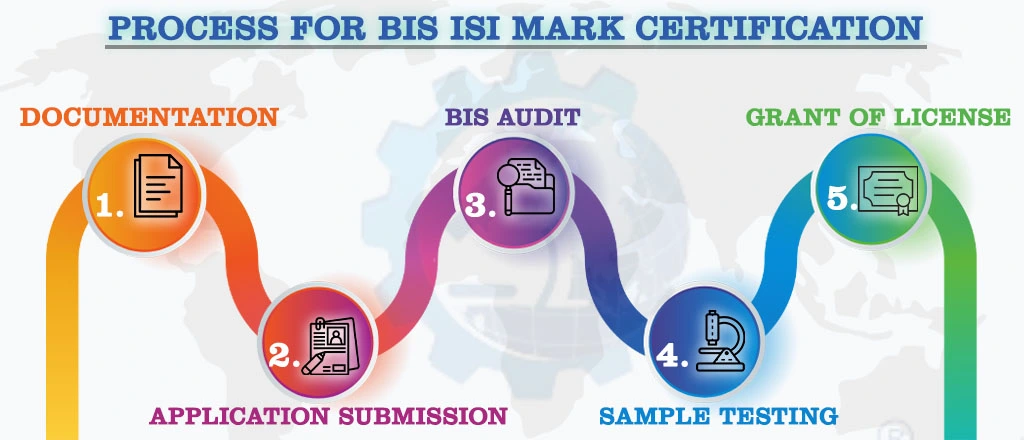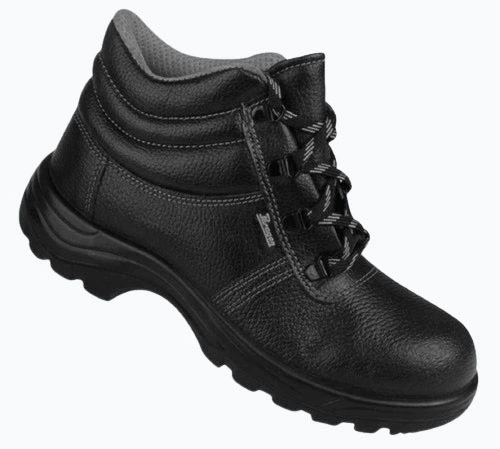BIS CERTIFICATION FOR PPE PROTECTIVE FOOTWEAR
IS 15298(PART 3):2019
When we are a manufacturer, we always want to increase our market share and brand values. In this competitive scenario, it isn't easy to survive in the market without a standard quality and certified product. BIS license may also be required to sell product in Indian market.
To get BIS certification and produce a standard quality product, ensure that your product must follow the specified Indian Standard for that product.
Let's take a closer look at IS 15298(Part 3):2019 for protective footwear.
Protective Footwear is covered under IS 15298(Part 3):2019. This standard specifies basic and additional requirements for protective Footwear.
Protective Footwear with toecaps, designed to protect the wearer from injuries caused by accidents when tested at an energy level of at least 100 J and against compression when tested at a compression force of at least 10 kN.
Classification of Footwear: According to the Indian Standard, Footwear is classified using the following code designations:
| Code designation | Classification |
|---|---|
| I | Footwear made from leather and other materials, excluding all-rubber or all-polymeric footwear. |
| II | All-rubber (i.e. entirely vulcanized) or all-polymeric (i.e. entirely moulded) footwear. |
The basic criteria described in this standard shall be met by protective Footwear, and protective Footwear must meet one of the design specifications stated in the standard.
All specified tests must be done in accordance with the methodologies indicated in the specification in a laboratory that is well-maintained, adequately equipped, and manned.
Test required
The following major tests shall be required for protective Footwear:
- Impact resistance test
- Compressive resistance test
- The corrosion resistance of metallic toecaps
- Leakproofness test
- Tear strength test
- Tensile properties test
- Flexing resistance test
- Water vapour permeability and coefficient test
- pH value
- Hydrolysis test
- Abrasion resistance test
- Penetration resistance test
Depending on the risks experienced in the workplace, additional requirements for protective Footwear may be required. In such instances, protective Footwear must comply with the additional requirement and markings outlined in the standard.
Each item of protective Footwear must be clearly and permanently marked with the following information:
- Size.
- Manufacturer's identification mark.
- Manufacturer's type designation.
- Year of manufacture.
- The number and year of this European Standard and any other information specified in the standard.
The Standard Mark (ISI Mark) may also be applied to each footwear. The Manufacturer must obtain a BIS license from the Bureau of Indian Standards to use a standard mark (ISI Mark). The Bureau grants a license based on a successful assessment of manufacturing infrastructure, production process, and quality control and testing capabilities during a visit to its manufacturing premises.

NOTE:
For Detailed Information about the Procedure for BIS ISI Certification,
Visit :
ISI Mark Certification for Domestic ManufacturersISI Mark Certification for Foreign Manufacturers
Conclusion:
If a product falls under the scope of the BIS Conformity Assessment Scheme, All the manufacturers, importers, and foreign entities must obtain BIS ISI Certification. The Bureau may cancel the License if the product fails to meet certification requirements.
Aleph INDIA has been serving the industry as a single-window operator for all product regulatory compliance. We can assist importers or manufacturers in meeting all criteria for importing or selling a product in the Indian market.
International Audits & Participation
Testimonials
BIS REGISTRATION FOR ELECTRONIC & IT PRODUCT
In the era of globalization, world trade is growing rapidly and henceforth, Manufacturing and Import/Export businesses are also growing drastically...View More
BIS CERTIFICATE FOR FOREIGN MANUFACTURER
The Economy of India-the fastest developing economy on the globe with the capabilities that help it matches up with the biggest international...View More
PRODUCT CERTIFICATION SCHEME (ISI MARK) FOR DOMESTIC MANUFACTURERS
Anything a person buys from food to cars, clothes to electronics, branded to unnamed products there is always a question that wanders in one’s...View More
WIRELESS PLANNING AND COORDINATION (WPC)
WPC: Wireless means communication done from one point to another point without the wires and cables. Electromagnetic waves carry the ...View More
BUREAU OF ENERGY EFFICIENCY (BEE) CERTIFICATE
BEE CERTIFICATE: Energy is the future, and its conservation is the way of the bright future. Everyone claims the environment is important...View More
E-WASTE MANAGEMENT
E-waste is one of the world's fastest-growing trash streams. We currently manufacture almost 50 million tones of it each year...View More
Request a call back.
Would you like to speak to one of our Senior Technical advisers over the phone? Just submit your details and we’ll be in touch shortly. You can also email us if you would prefer.
BIS REGISTRATION FOR ELECTRONIC & IT PRODUCT
In the era of globalization, world trade is growing rapidly and henceforth, Manufacturing and Import/Export businesses are also growing drastically...View More
BIS CERTIFICATE FOR FOREIGN MANUFACTURER
The Economy of India-the fastest developing economy on the globe with the capabilities that help it matches up with the biggest international...View More
PRODUCT CERTIFICATION SCHEME (ISI MARK) FOR DOMESTIC MANUFACTURERS
Anything a person buys from food to cars, clothes to electronics, branded to unnamed products there is always a question that wanders in one’s...View More
WIRELESS PLANNING AND COORDINATION (WPC)
WPC: Wireless means communication done from one point to another point without the wires and cables. Electromagnetic waves carry the ...View More
BUREAU OF ENERGY EFFICIENCY (BEE) CERTIFICATE
BEE CERTIFICATE: Energy is the future, and its conservation is the way of the bright future. Everyone claims the environment is important...View More
E-WASTE MANAGEMENT
E-waste is one of the world's fastest-growing trash streams. We currently manufacture almost 50 million tones of it each year...View More
View All Services
Request a call back.
Would you like to speak to one of our Senior Technical advisers over the phone? Just submit your details and we’ll be in touch shortly. You can also email us if you would prefer.






























